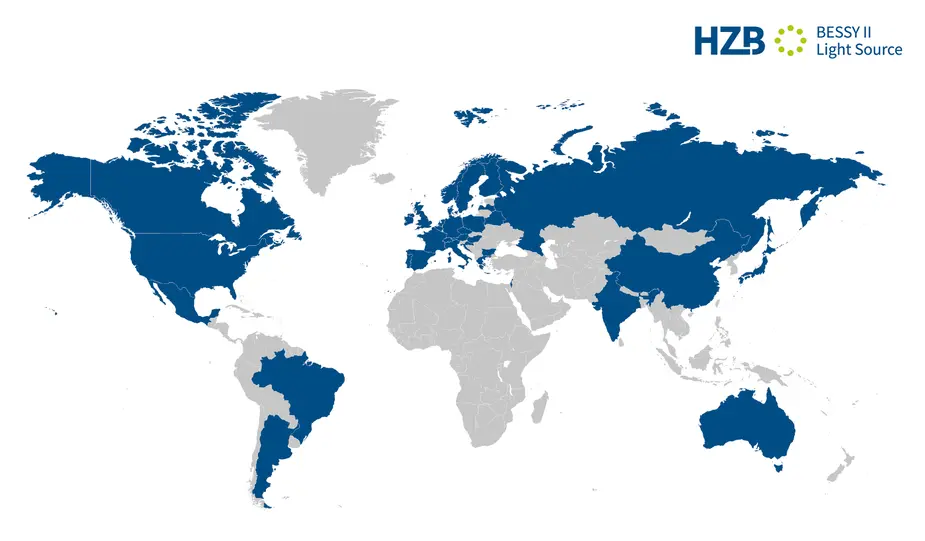International research at BESSY II continued even in the corona year 2021
Large scale research facility in Adlershof registered 1400 user visits from 34 countries
2021 was not an easy year for international research: owing to lockdowns and travel bans, science was hit hard by the pandemic situation. Nevertheless, experiments continued at a high level at the BESSY II light source in Berlin Adlershof – thanks in part to new remote service offers.
“It makes us happy that BESSY II was dependably available to researchers for around 6000 hours despite the difficult conditions,” says Dr. Antje Vollmer, Head of User Coordination at HZB. The light generated at BESSY II is directed through 25 beamlines to 37 experimental stations. Thus, altogether, light was available for nearly 150,000 hours of research at all the beamlines. This light is used for experiments in many fields, including physics, chemistry and the life sciences.
47 percent of user groups from abroad
As was to be expected, given that travel had to be limited, COVID-19 left a dip in user visits in 2021. “We counted just under 1400 visits from users last year. What surprised us, in view of the tense situation, was that 30 percent of the user groups came from other European countries and 17 percent were from non-European countries,” reports Antje Vollmer. “In total, we had user groups from 34 countries, which is an astonishing number.”
The fact that researchers from abroad conducted their experiments at BESSY II even in the corona year 2021 underlines the attractiveness of the photon source and the experimental stations, some of which are unique worldwide. “It also shows that the users here are very well looked after by dedicated scientists at the experimental stations and are happy to come back.”
New remote services at BESSY II
To ensure that research could continue despite the travel bans, new remote services were offered at many experimental stations. Users submitted samples and took part in their experiments virtually. “Our beamline supervisors organised this service at very short notice to ensure that socially relevant research could continue wherever possible,” says Vollmer. A total of 27 percent of all experiments were conducted remotely or with remote participation.
Further information:
Contact:
Helmholtz-Zentrum Berlin für Materialien und Energie
Department User Coordination
Dr. Antje Vollmer
Phone: +49 30 8062-14666
Email: antje.vollmer(at)helmholtz-berlin.de
Press release HZB, 23 February 2022
